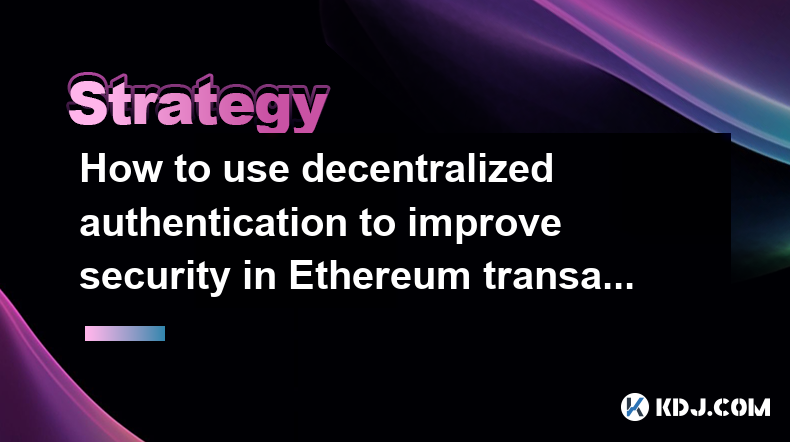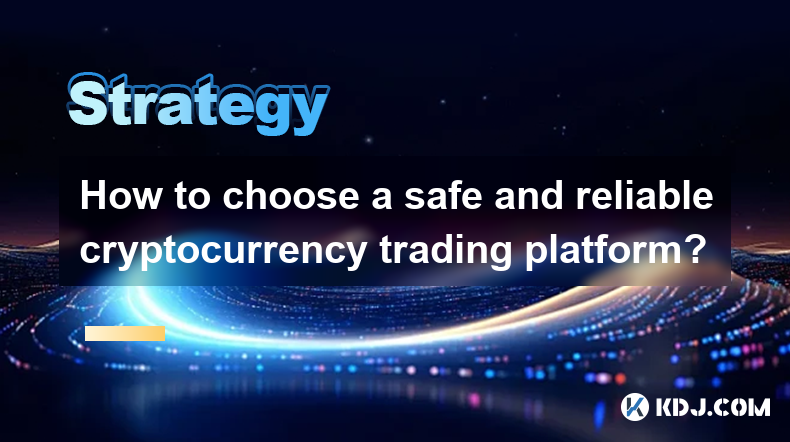-
 Bitcoin
Bitcoin $87,117.4970
-0.35% -
 Ethereum
Ethereum $2,421.5228
1.81% -
 Tether USDt
Tether USDt $0.9989
-0.05% -
 XRP
XRP $2.2474
2.87% -
 BNB
BNB $616.6060
1.68% -
 Solana
Solana $137.3017
0.60% -
 USDC
USDC $0.9999
0.00% -
 Dogecoin
Dogecoin $0.2069
2.20% -
 Cardano
Cardano $0.6760
4.83% -
 TRON
TRON $0.2292
0.54% -
 Chainlink
Chainlink $15.4686
6.38% -
 Litecoin
Litecoin $126.8873
15.70% -
 Sui
Sui $2.9811
9.24% -
 Avalanche
Avalanche $22.0780
6.32% -
 Stellar
Stellar $0.2938
6.83% -
 Toncoin
Toncoin $3.5273
2.59% -
 UNUS SED LEO
UNUS SED LEO $9.2312
3.93% -
 Shiba Inu
Shiba Inu $0.0...01421
4.57% -
 Hedera
Hedera $0.1964
7.25% -
 MANTRA
MANTRA $7.7455
0.62% -
 Polkadot
Polkadot $4.8105
10.57% -
 Hyperliquid
Hyperliquid $20.3325
10.95% -
 Ethena USDe
Ethena USDe $0.9993
-0.02% -
 Bitcoin Cash
Bitcoin Cash $294.0376
4.95% -
 Dai
Dai $0.9997
0.01% -
 Uniswap
Uniswap $8.0712
4.62% -
 Bitget Token
Bitget Token $3.8811
-7.19% -
 Monero
Monero $217.1669
-0.86% -
 NEAR Protocol
NEAR Protocol $3.0448
6.74% -
 Pepe
Pepe $0.0...08231
6.33%
How to use decentralized authentication to improve security in Ethereum transactions?
Decentralized authentication enhances Ethereum transaction security by eliminating single points of failure, protecting user privacy, and simplifying the user experience.
Feb 26, 2025 at 06:54 pm

Key Points:
- Overview of decentralized authentication and its benefits for Ethereum transactions.
- Key challenges in integrating decentralized authentication.
- Step-by-step guide to implementing decentralized authentication solutions.
- Best practices and considerations for secure and reliable decentralized authentication.
- Frequently asked questions (FAQs) on decentralized authentication and Ethereum security.
How to Use Decentralized Authentication to Improve Security in Ethereum Transactions
Overview and Benefits of Decentralized Authentication
Decentralized authentication (DA) is a security mechanism that verifies user identities without relying on centralized entities or intermediaries. It offers significant advantages over traditional centralized authentication methods, particularly for blockchain applications such as Ethereum transactions.
Benefits of DA for Ethereum transactions include:
- Increased security: DA eliminates single points of failure and reduces the risk of hacking or unauthorized access.
- Privacy enhancement: DA allows users to control their own identity data, preventing it from being compromised by third parties.
- Improved user experience: DA simplifies authentication processes, reducing the need for complex passwords and multi-factor authentication mechanisms.
Challenges in Integrating Decentralized Authentication
While DA offers numerous benefits, integrating it into Ethereum transactions presents several challenges:
- Interoperability: DA solutions must be compatible with various blockchain networks and Ethereum ecosystem components.
- Performance: DA processes should be efficient and scalable to handle a high volume of transactions without compromising security.
- Cost: Implementing DA solutions may require additional resources and transaction fees compared to centralized authentication methods.
Step-by-Step Guide to Implementing Decentralized Authentication Solutions
1. Choose a Decentralized Authentication Provider
Select a DA provider that offers a secure and reliable solution compatible with Ethereum blockchain. Research different providers and compare their features, security measures, and support options.
2. Integrate Provider to Ethereum Network
Configure the Ethereum network to communicate with the chosen DA provider. This may involve installing smart contracts or modifying node settings. Ensure proper security measures are implemented to prevent unauthorized access.
3. Implement Identity Verification
Develop logic within Ethereum smart contracts to handle user identity verification using the DA provider. Create functions for user registration, login, and authentication renewal.
4. Utilize Identity Authorization
Authorize users to perform specific actions based on their verified identities. Integrate the DA verification process into transaction workflows, ensuring that users meet the necessary permissions and access levels.
5. Monitor and Manage User Sessions
Implement mechanisms to track user sessions and enforce authentication expiry policies. Regularly review logs and metrics to detect suspicious activity or unauthorized access attempts.
Best Practices and Considerations for Secure Decentralized Authentication
- Key Management: Use robust key management strategies to securely store and manage cryptographic keys used for user authentication.
- Transaction Validation: Verify the integrity and authenticity of authentication signatures to prevent fraudulent or malicious transactions.
- Multi-Factor Authentication: Consider implementing additional authentication factors to enhance security, such as SMS verification or hardware security keys.
FAQs on Decentralized Authentication and Ethereum Security
Q: What are the limitations of decentralized authentication for Ethereum transactions?
A: While DA offers significant benefits, it may not be suitable for every application. It can be more complex to implement and may require additional technical expertise.
Q: How does decentralized authentication improve the security of smart contracts?
A: DA ensures that only authorized parties can access and modify smart contracts, reducing the risk of unauthorized modifications or malicious activity.
Q: What are the future trends in decentralized authentication for Ethereum?
A: Ongoing research and development are focusing on improving interoperability, scalability, and user experience of DA solutions. New protocols and technologies are emerging to address these challenges.
Disclaimer:info@kdj.com
The information provided is not trading advice. kdj.com does not assume any responsibility for any investments made based on the information provided in this article. Cryptocurrencies are highly volatile and it is highly recommended that you invest with caution after thorough research!
If you believe that the content used on this website infringes your copyright, please contact us immediately (info@kdj.com) and we will delete it promptly.
- Oklahoma Passes a Strategic Bitcoin Reserve Bill Despite BTC's Recent Drop Below $90K
- 2025-02-26 22:45:31
- Bitcoin (BTC) Price Drops $20k from ATH as Crypto Market Remains Flat
- 2025-02-26 22:45:31
- CoinW Elevates Security Standards and Unveils High-Yield Crypto Earnings
- 2025-02-26 22:45:31
- Pi Coin: The Next Big Leap in Cryptocurrency Acceptance?
- 2025-02-26 22:45:31
- Pi Coin Price Soars 200% Following Dip, But These Penny Altcoins Could Skyrocket 50x in 2025
- 2025-02-26 22:45:31
- Orbs Enables Its Perpetual Hub to Interact with Xpanse, a Perpetual Trading Protocol
- 2025-02-26 22:45:31
Related knowledge

What should beginners pay attention to when buying and selling cryptocurrencies?
Feb 26,2025 at 03:18pm
Key Points of the Article:Understanding the Basics of Cryptocurrency:Defining cryptocurrency and its underlying technologyExploring the different types of cryptocurrenciesChoosing a Cryptocurrency Exchange:Factors to consider when selecting an exchangeComparison of top cryptocurrency exchangesCreating a Cryptocurrency Wallet:Types of cryptocurrency wall...

What are the common risks of cryptocurrency trading? How to avoid them?
Feb 26,2025 at 03:30am
Key Points:Understanding the volatility and price fluctuations of cryptocurrencies.Awareness and avoidance of fraud and scams.Mitigation of hacking risks and secure storage of digital assets.Protection against regulatory changes and tax implications.Education and knowledge enhancement to minimize investment risks.1. Volatility and Price Fluctuations:Cry...

What tools or accounts are needed to buy and sell cryptocurrencies?
Feb 25,2025 at 08:00pm
How to Buy and Sell Cryptocurrencies: A Comprehensive GuideKey Points:Understand the different types of cryptocurrency exchanges.Create an account with a reputable exchange.Fund your account with fiat currency or other cryptocurrencies.Place buy or sell orders based on market conditions.Track your trades and manage your portfolio effectively.Tools and A...

How to choose a safe and reliable cryptocurrency trading platform?
Feb 26,2025 at 10:00am
How to Choose a Safe and Reliable Cryptocurrency Trading PlatformNavigating the cryptocurrency trading landscape can be daunting, but choosing a safe and reliable platform is paramount to protecting your investments. Here's a comprehensive guide to help you make an informed decision:Key Points:Assess platform security, regulation, and reputation.Conside...

What are the payment methods for buying and selling virtual currency?
Feb 26,2025 at 03:12pm
Key Points:Understanding the payment methods for buying and selling virtual currency.Exploring different options available for deposits and withdrawals.Identifying security measures and policies related to payment methods.Analyzing the fees and transaction times associated with each payment method.Payment Methods for Buying and Selling Virtual Currency:...

How to determine the timing of buying and selling virtual currency?
Feb 26,2025 at 05:37am
Key PointsMonitor market trends and news to identify potential price fluctuations.Use technical analysis tools to analyze price charts and identify patterns and indicators.Set clear entry and exit points based on your research and analysis.Manage your risk by diversifying your portfolio and using stop-loss orders.Stay informed about industry news and re...

What should beginners pay attention to when buying and selling cryptocurrencies?
Feb 26,2025 at 03:18pm
Key Points of the Article:Understanding the Basics of Cryptocurrency:Defining cryptocurrency and its underlying technologyExploring the different types of cryptocurrenciesChoosing a Cryptocurrency Exchange:Factors to consider when selecting an exchangeComparison of top cryptocurrency exchangesCreating a Cryptocurrency Wallet:Types of cryptocurrency wall...

What are the common risks of cryptocurrency trading? How to avoid them?
Feb 26,2025 at 03:30am
Key Points:Understanding the volatility and price fluctuations of cryptocurrencies.Awareness and avoidance of fraud and scams.Mitigation of hacking risks and secure storage of digital assets.Protection against regulatory changes and tax implications.Education and knowledge enhancement to minimize investment risks.1. Volatility and Price Fluctuations:Cry...

What tools or accounts are needed to buy and sell cryptocurrencies?
Feb 25,2025 at 08:00pm
How to Buy and Sell Cryptocurrencies: A Comprehensive GuideKey Points:Understand the different types of cryptocurrency exchanges.Create an account with a reputable exchange.Fund your account with fiat currency or other cryptocurrencies.Place buy or sell orders based on market conditions.Track your trades and manage your portfolio effectively.Tools and A...

How to choose a safe and reliable cryptocurrency trading platform?
Feb 26,2025 at 10:00am
How to Choose a Safe and Reliable Cryptocurrency Trading PlatformNavigating the cryptocurrency trading landscape can be daunting, but choosing a safe and reliable platform is paramount to protecting your investments. Here's a comprehensive guide to help you make an informed decision:Key Points:Assess platform security, regulation, and reputation.Conside...

What are the payment methods for buying and selling virtual currency?
Feb 26,2025 at 03:12pm
Key Points:Understanding the payment methods for buying and selling virtual currency.Exploring different options available for deposits and withdrawals.Identifying security measures and policies related to payment methods.Analyzing the fees and transaction times associated with each payment method.Payment Methods for Buying and Selling Virtual Currency:...

How to determine the timing of buying and selling virtual currency?
Feb 26,2025 at 05:37am
Key PointsMonitor market trends and news to identify potential price fluctuations.Use technical analysis tools to analyze price charts and identify patterns and indicators.Set clear entry and exit points based on your research and analysis.Manage your risk by diversifying your portfolio and using stop-loss orders.Stay informed about industry news and re...
See all articles

















































































